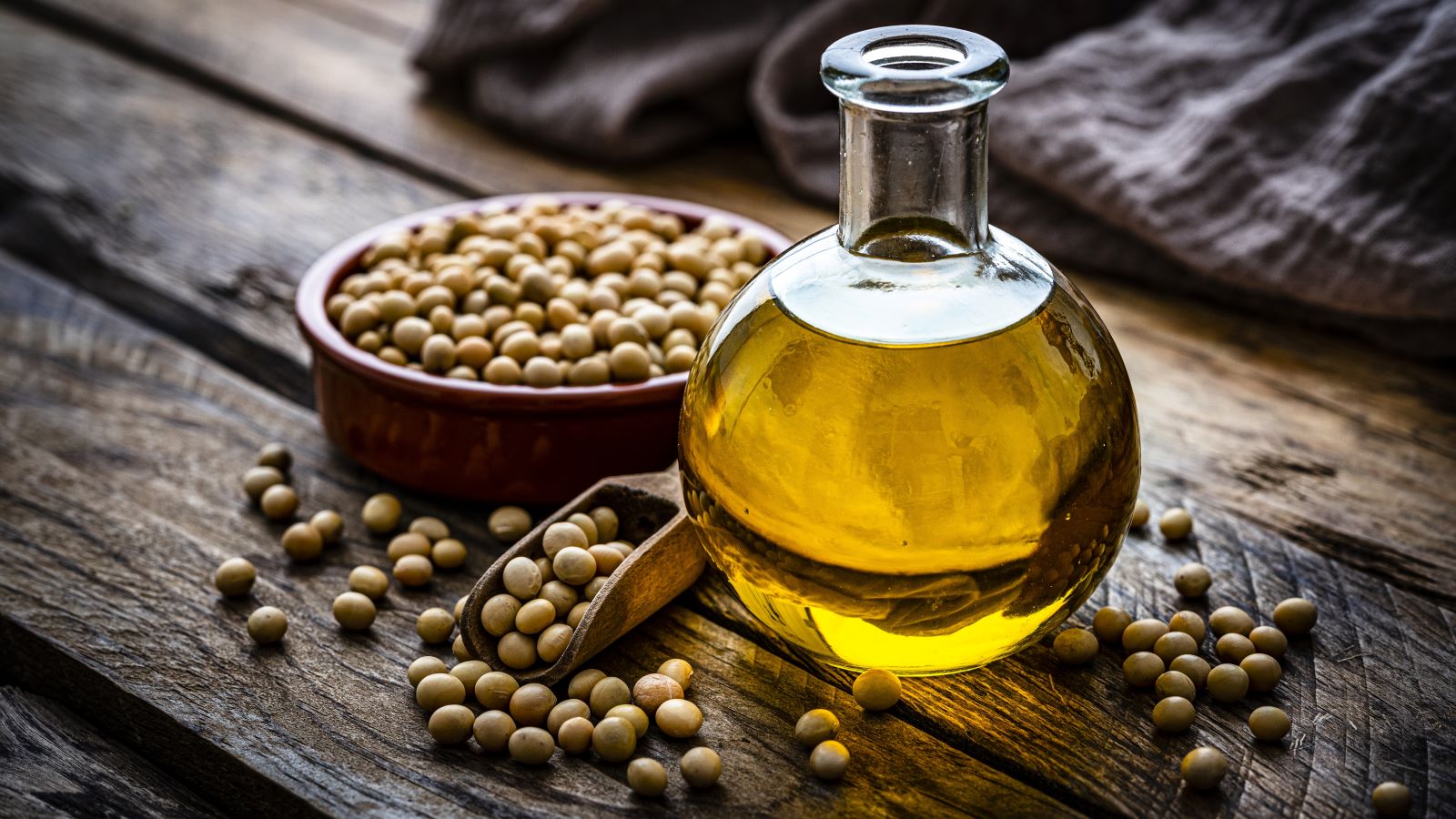<< Back
What to Know About Seed Oils and Your Health

August 21, 2025
They’re in your salad dressing, your favorite chips and even some plant-based milk, but you might not give them a second thought. Seed oils, like soybean, sunflower, canola and corn oil, are some of the most common cooking and food manufacturing fats in the U.S.
But in recent years, they’ve sparked heated debate. Critics claim they cause inflammation, heart disease and other chronic health problems, while others argue they can be part of a healthy diet when used in moderation.
So before you toss out your canola oil, here’s what you need to know.
What exactly are seed oils?
These oils get their name right from the source – the seeds they’re made from. That includes canola, sunflower, soybean, corn and grapeseed oils.
“These are commonly used in processed foods, but they also show up a lot in home cooking. For many people, they’re a more affordable replacement for butter, and they don’t go bad as quickly,” says Jamie Allers, MS, a registered dietitian with Hartford HealthCare’s Digestive Health Institute.
But lately, they’ve come under fire.
The outrage has mostly been sparked by omega-6 fatty acids.
Seed oils are high in these fats, which, in large amounts, have been linked to inflammation. That’s led some people to blame them for everything from heart disease to obesity.
But according to Allers, that’s a big leap.
“Omega-6s are essential fats. Your body needs them,” she says. “The problem isn’t the seed oils themselves — it’s that many of us are getting too many omega-6s and not enough omega-3s, which help reduce inflammation.”
So cutting out seed oils might not be the answer.
“Instead, consider a more balanced approach. If your diet is heavy in omega-6s, try adding more omega-3s to your diet – think flaxseed, chia seeds, walnuts, and fatty fish like salmon,” says Allers.
> Related: Which Cooking Oil Is Best for My Health (and My Food)?
Here’s how seed oils stack up.
Unlike butter, seed oils are plant-based and cholesterol-free. They’re also lower in saturated fat, which has been linked to heart disease when consumed in excess.
But they aren’t as nutrient-dense as olive oil.
“Olive oil, especially extra virgin, has more antioxidants and anti-inflammatory benefits than most seed oils,” Allers says. “It’s a great choice when you can use it.”
Still, that doesn’t mean seed oils are harmful.
“They can be a useful, budget-friendly option, especially for high-heat cooking,” she adds.
> Want more health news? Text StartHere to 85209 to sign up for text alerts
At the end of the day, it’s all about balance.
Unless you’re drinking them by the cup (please don’t), there’s probably no need to panic. The occasional stir-fry or store-bought snack isn’t going to sabotage your health.
“It’s about the big picture,” says Allers. “Your overall diet matters more than whether you use canola oil or olive oil in one recipe.”
Her advice: Aim for variety. Swap in olive oil when you can, limit processed foods, and make sure you’re getting those omega-3s.
“Seed oils have been used in cooking for decades, and most of the concerns you hear online are based on fear, not facts,” Allers notes. “When used in moderation, they can absolutely be part of a healthy diet.”
“Demonizing individual ingredients usually leads to confusion and unnecessary stress,” says Allers. “There’s no one ‘bad’ oil — it’s about how it fits into your whole lifestyle.”